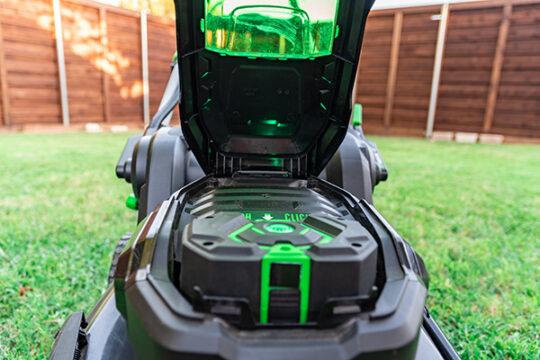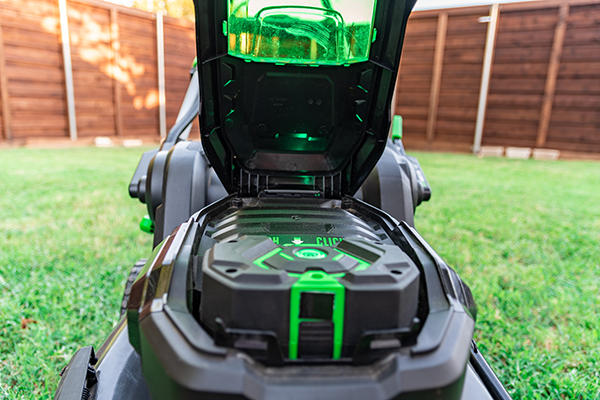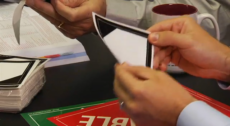
The e-commerce industry has been one of the few beneficiaries of this year’s COVID-19 pandemic. In the second quarter of 2020, e-commerce sales were up 44.4% over the same quarter in 2019.
All signs indicate that this year’s holiday season will see another giant surge in e-commerce deliveries. And some of the fastest-growing, most popular gifts use large format lithium-ion batteries:
- Power tools
- Leaf blowers
- Lawn mowers
- Chainsaws
- Snow blowers
- E-bikes
These rechargeable batteries—and the products they power—pose a transport hazard. They carry a small but significant risk of spontaneously catching fire due to a process called thermal runaway if the batteries are not packaged correctly and short circuit. That’s why lithium batteries are considered Dangerous Goods, and why large format lithium-ion batteries are fully regulated hazmat.
Here are 13 things every e-commerce shipper should know about shipping large format lithium-ion batteries.
- You are shipping hazmat. Yes, we already said that, but it bears repeating. Thousands of businesses have just gotten into e-commerce for the first time this year, and many of them simply don’t know that lithium batteries are regulated as hazardous materials for transport by air, sea, rail and road.
- Any lithium-ion battery rated higher than 100 watt-hours (Wh) is fully regulated Class 9 hazmat. Many smaller lithium-ion batteries—like the ones for cell phones or tablets—can be shipped as “Excepted” (also referred to as Section II when shipped by air), but large format lithium-ion batteries may only be shipped in accordance with all the regulations governing Class 9 materials. (An additional exception for up to 300 Wh exists in the U.S. by ground only.)
- Improperly shipping large lithium batteries can hurt your business. If a federal inspector finds one of your shipments not labeled, packaged and documented properly, the shipment will be held up or returned to you, and you might be facing a significant civil penalty. If a carrier finds one of your shipments to be non-compliant, they won’t deliver it—and they may refuse to accept further hazmat shipments from you.
- A battery shipment that causes a thermal runaway incident could destroy your business. If one of your large format batteries goes into thermal runaway and causes a fire in a truck, warehouse or cargo hold, and the shipment is found to be non-compliant, you could be responsible for millions of dollars’ worth of damage. That’s what all these rules are designed to prevent.
- Large format lithium-ion batteries require UN specification packaging. Specific requirements vary by mode, with air transport naturally being the most restrictive. There are also less stringent packaging requirements if the battery is shipped “Contained in Equipment.” A Labelmaster expert or Lithium Battery Advisor software can help you determine which package your batteries or products require.
- Large format lithium-ion batteries require special labeling. Your packages need Class 9 lithium battery labels. Since your packages will also need to show the UN number and proper shipping name applicable to your shipment, you may opt for labels pre-printed with UN numbers and/or personalized with your contact information.
- Large format lithium-ion batteries require special documentation. Each of your shipments must be accompanied by completed Shipping Papers.
- You can get many of the items you need in a Labelmaster battery shipping kit. Many of these kits include a lithium battery 4G outer package, Class 9 Lithium Battery Label with the UN number and proper shipping name on an attached tab, Cargo Aircraft Only Label, lithium battery label and 10 Shipper’s Declaration for Dangerous Goods forms.
- If your standalone lithium battery shipment will be transported by air, it can only travel via cargo aircraft. Large format lithium-ion batteries may not travel as cargo on passenger aircraft. You’ll also need a Cargo Aircraft Only Label.
- Your teams need special training. Because large format lithium-ion batteries are fully regulated hazmat, anyone who is involved in preparing or handling them for transport must have full hazmat training for all modes by which they’re shipped. At the bare minimum, they’ll need Shipping Fully Regulated And Excepted Lithium Batteries.
- There are different rules for shipping batteries packed with or in equipment. For example, if you’re shipping a leaf blower with the battery already installed—and not just the battery—various exceptions apply. Lithium-metal batteries have slightly different rules, too. We’re not going to go into all the variations here, but this is another great reason to speak to an expert.
- If you are a manufacturer or subsequent distributer you will need to have test summaries on file for each type of battery you ship. A test summary is simply some form of documentation that proves the batteries you’re distributing meet the testing standards as defined in sub-section 38.3 of the UN Manual of Tests and Criteria. (Here’s a good summary of the lithium battery test summary rules.) A test summary isn’t a shipping document—you just have to have them available if anyone asks.
- Shipping large format lithium-ion batteries isn’t as hard as we’re making it sound. Once you and your personnel are adequately trained and you have your processes set up, it’s just like shipping anything else. Having advanced hazmat software that validates the documentation for every shipment in seconds makes it even easier.
What if you only ship a few large format lithium-ion batteries all season? Frankly, it won’t be worth your time or money to invest in most of the above—you’d be better off working with a third-party logistics provider who knows exactly what needs to be done.
The important thing is that, whether you ship a handful of large format lithium-ion batteries or a hundred thousand, you make sure your shipments are safe and compliant. Non-compliant battery shipments can hurt your bottom line, and in a worst-case scenario can injure or even kill workers in the supply chain.
If you have questions about any aspect of shipping large format lithium-ion batteries, please contact the experts at Labelmaster. We’ll help you make this a safe and successful holiday gift season!



